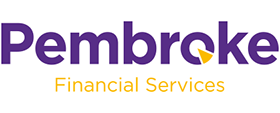For anyone nearing retirement with time remaining before your mortgage comes to an end, it can be concerning when a significant portion of your income is designated to making the re-payments.
The custom has been for retirees to endeavour to be debt-free when reaching the retirement milestone. Nevertheless, this may not always be possible due to other factors. The increase in property prices and homeowners commonly taking the first step onto the property ladder in later life, are frequently found to be reasons why those coming up to retirement are faced with paying off a mortgage. Furthermore, there are a multitude of other factors that could also have an impact and are out of your control.
If you find yourself in this situation, you’re not alone and there are ways to improve your financial security in retirement. One in three people set to retire in 2020 will do so with some form of debt. Some 14% will retire whilst still having a mortgage to pay. For many families, a mortgage is the largest monthly expense they have and to be taking this into retirement with you, when your income will likely decrease, can be a worry.
One option to consider is a retirement interest-only (RIO) mortgage.
What is a RIO?
Retirement Interest-only mortgages or RIO mortgages are directed at older borrowers aged 60 or over with mortgage debt remaining.
Reducing the amount of debt owed and paying interest may not be achievable or desirable on a pension income. As a result, a RIO mortgage offers you a way to pay just the interest on the loan. As interest rates are low at the moment, this can significantly reduce outgoings. Unlike traditional mortgages, retirement interest-only mortgages do not have a fixed end date to repay the balance. This can provide you with peace of mind.
When applying for retirement interest-only mortgages you’ll still need to prove you can afford the monthly repayments with your available retirement income, in the long term.
The benefits of a RIO mortgage include:
- Your outgoings in retirement will reduce in comparison to a traditional mortgage
- You will be able to remain in your own home
- Flexibility can be provided with RIO mortgage products, such as the capability to reduce the debt
There are of course also disadvantages to using a RIO mortgage, including:
- Unless you make additional payments, the amount you owe won’t reduce
- As you’re no longer in employment, it can be more challenging to secure a higher loan
- With the loan secured against your home, if you fail to keep up with repayments, your home could be repossessed
A RIO mortgage isn’t always appropriate for all those who have remaining debt when they are approaching retirement, so it’s essential to carefully consider all your options before proceeding.
5 Other options to an interest-only mortgage
1. Carry on with your current arrangement
Simply because you’re retiring, you don’t necessarily have to change your existing mortgage, and it’s your choice whether you continue with it. However, it’s important to consider whether you will be able to afford the mortgage repayments on retirement, and how your lifestyle may be affected.
2. Elect to make overpayments now
If retirement is not imminent, choosing this option can have a considerable impact. Making overpayments can have a rapid reduction on the outstanding debt, as these are subtracted from the amount due rather than the interest. Do ensure you thoroughly check the terms of your mortgage, as some lenders will charge you for overpaying in excess of a specific point.
3. Use your pension
Pensions become accessible for many people from the age of 55. It is generally possible to access a 25% lump sum tax-free and start to receive regular payments at this time if you choose. The lump-sum could be beneficial in clearing your outstanding mortgage debt. However, withdrawing money from your pension could potentially affect your disposable income in the long-term, so this needs to be carefully thought-through.
4. Use assets to pay off debt
There may be other assets which can be used to clear your remaining mortgage, such as investments or savings. Once again, you’ll need to confirm whether if these are used to begin your retirement mortgage-free, your plans over the short, medium and long term will be affected.
5. Downsize
Resting on the value of your home, circumstances and the remaining mortgage debt, downsizing be of benefit when entering retirement without a mortgage. Using the proceeds from the sale of your house to purchase a new home in a lower price bracket, could provide financial freedom in retirement, with the possibility of having more available funds to spend on your aspired lifestyle.
Please contact us if you’re worried about your financial security as you approach retirement. There are often steps you can take to secure your future and provide peace of mind.
Please Note: The loan is secured against your home, as a result, the property can be repossessed if you don’t keep up with repayments.
















